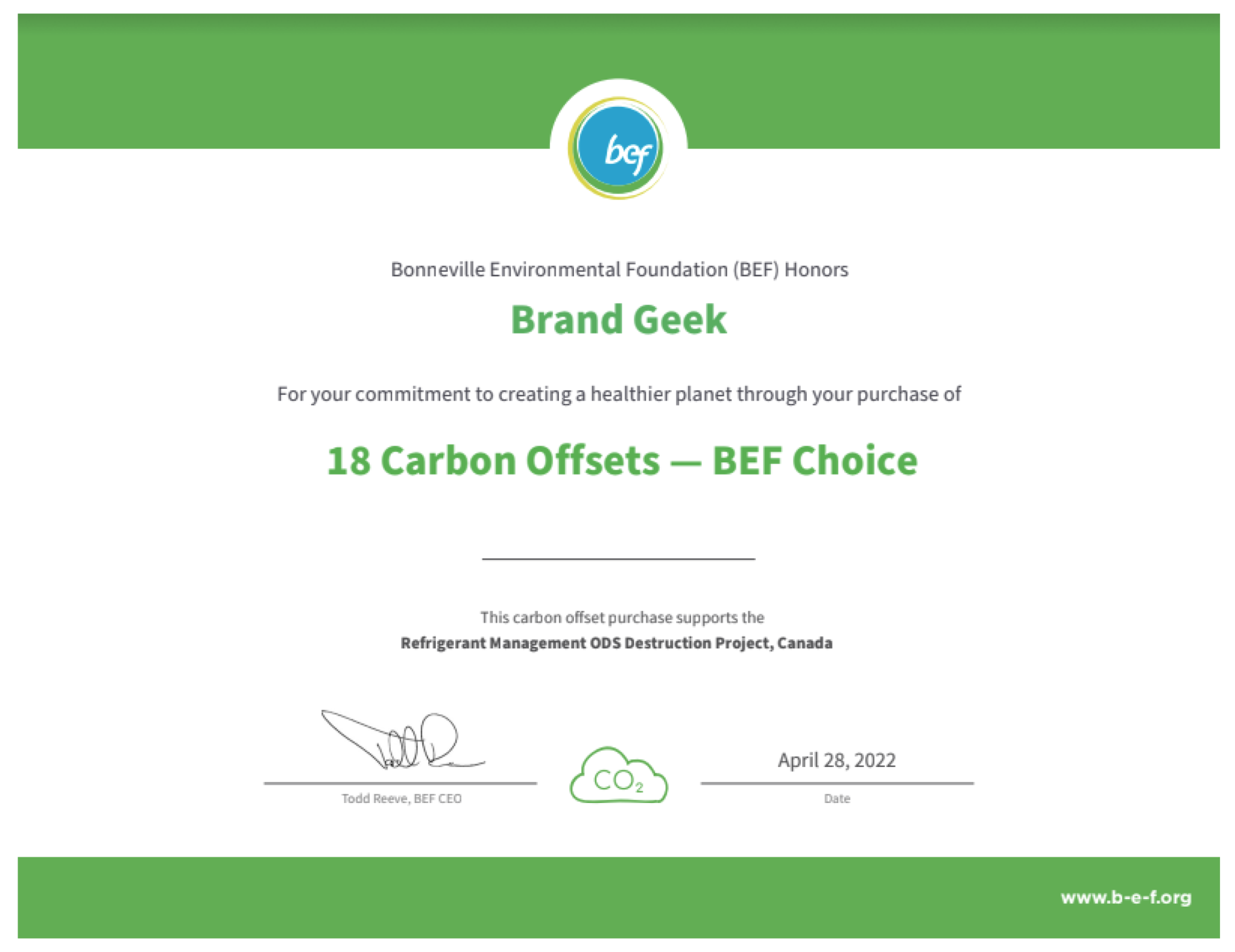Brandgeek proudly supports Mountain Area Preservation and is humbled to be…
Geekview IP Weeks(ish) in Review — New Year’s Edition
Hell’s Bells!! A bitter battle between BELL brew brands.

Bell’s Brewery tells Winery Exchange its new COPPER BELL beer leaves a bitter taste in Bell’s mouth. Bell’s Brewery is a Michigan craft brewer that’s been brewing BELL’s beer (and lager, ale, porter, stout & malt liquor) since September, 1985. It now sells its beer in 18 states in liquor stores, grocery stores, delis, restaurants, cafes, bars, c-stores, mom-n-pop shops, mass merchandisers, wholesale clubs, beer festivals, music festivals and other types of festivals (yay festivals!). It also sells BELL’S BEER merchandise like brewing kits, tap handles, t-shirts, towels, stickers, belt buckles, bracelets, dog bowls, scarves, bike jerseys and beanies, among other logo gear, which in fact is supposed to demonstrates the popularity of BELL’S beer, I think. Winery Exchange filed a trademark registration for COPPER BELL for beer in December, 2010 and began selling COPPER BELL beer at the Whole Foods store in Ann Arbor, Michigan sometime in 2011.
That got Bell’ Brewery’s s bonnet in a bundle, so it Opposed registration of the COPPER BELL trademark and filed suit against Winery Exchange, after the latter failed to heed a C&D letter issued in June, 2011. While the logos are dissimilar, the BELL is the dominant part of both marks and the goods are identical. Were I Bell’s Brewery, I too would cheer, “No beer bells for you, Winery Exchange!” If you’re gonna teach others to cheer, be sure you do so under a brand that’s unique . . .
Cheerleading academy turns to the court to toss infringer.
Two STELLAR ALLSTAR cheerleading academies!?! How could that happen? Or maybe we should be asking ourselves how did these two STELLAR ALLSTARS happen to bump into another, cause they can’t be the only two like-named outfits offering cheerleading training and cheer tumble instruction services. Can they? For now, in the Eastern District of Pennsylvania and at the TTAB, the STELLAR ELITE ALL-STARS and STELLAR ALLSTARS are head to head — in court! According to the lawsuit filed on December 08, 2011, STELLAR ELITE ALL-STARS cheerleaders have trained and competed in Pennsylvania and elsewhere since 2005, under various marks including STELLAR CHEER ALL-STARS, which they applied to federally register with the USPTO in July, 2010. This application was Published for Opposition in January, 2011 and for some unknown reason, Stellar Allstar Cheer Academy Opposed it. See, Stellar Allstar Cheer Academy appeared on the scene in 2010 and began competing with the STELLA ELITE ALL-STARS, both for business and at actual cheerleading competitions (I wonder who won!). I am guessing this is the first trademark for Stellar Allstar Cheer’s counsel, who apparently slept through class on the day prior use was covered. Otherwise he might have noticed that his client’s first use date is 5 years later than the applicant’s. Now his clients are defending themselves in a federal trademark infringement lawsuit that they seem destined to lose. Hopefully, the academy is more choosey about its cheerleading instructors than its lawyers. And hopefully the next case will teach Crest to be more choosy about its marketing . . .
Crest gets chewed out for false advertising.
Not only do these sub-brands of Crest toothpaste look similar, but they apparently have the same ingredients. So, what’s the difference, and the big deal? Price and unsubstantiated marketing claims, that’s what. Crest Sensitivity promises to relieve tooth sensitivity and pain “within minutes,” apparently justifying the 75% premium over Crest Pro Health. To the dismay of P&G and people with sore mouths everywhere, Crest failed to substantiate such claims, according to findings released by NAD in October, 2011. While NAD found Crest’s studies to be robust and well-designed, they failed to demonstrate the near-immediate pain relief claimed in Crest’s advertising and promotion of its Sensitivity product. Since such claims were likely to influence consumers’ purchasing decisions, NAD instructed Crest to discontinue its claims of “pain relief within minutes.” Enter Edward Rossi, who filed a class action lawsuit against Crest’s parents — Procter & Gamble (P&G) — for false advertising and a host of related claims. Armed with the NAD opinion, Rossi must be smiling about his chances of success, even if his teeth still hurt. P&G isn’t the only one in the doghouse . . .
Plan B Enterprises better have a Plan B.
THE WIGGLEBUTT INN is the service mark and trade name of a doggie daycare and boarding facility in Naples, Florida. THE WIGGLEBUTT INN service mark has been in use since October, 2009 and was federally registered in June, 2010 for “pet boarding and daycare services for dogs.” Plan B Enterprises started using The WIGGLEBUTT DOGHOUSE service mark in Indianapolis, Indiana in September 2010 (after use and federal registration of THE WIGGLEBUTT INN). In June, 2011 Wigglebutt Inn told the Wigglebutt Doghouse folks it had a bone to pick about shared use of the WIGGLEBUTT name. When the doghouse folks ignored the Inn’s C&D letter, the folks at the Inn took the dogfight to federal court, filing suit for trademark infringement. And now the doghouse folks find themselves right at home in the doghouse for willful trademark infringement. Meanwhile, in other news of animal infringement . . .
Go Fish trolls for infringers.
What does one find when it trolls for infringers? Infringers, of course! So Kingsbridge and Doe plaintiffs 1-20 who were (or may soon be) caught with matching card games find themselves in court for copyright infringement. The Clever Factory has no website that I could find, but what it does own are six copyright registrations:
VA1-409-168 for Matching
VA1-409-212 for Old Maid
VA1-409-169 for Crazy Eights
VA1-711-547 for Go Fish
TX6-568-476 for Old Maid Instructions
TXU 1-355-067 for Crazy Eights Instructions
Oddly, the complaint states, “the designs and illustrations and adaptations of the card games . . . were created under a work for hire arrangement. The author assigned all ownership rights and interests in and to the Works to the Plaintiff between 2004 and 2006.” Now any copyright attorney worth their salt knows that works for hire and copyright assignments are different and mutually exclusive. A work is either a work for hire or its copyright was assigned; it cannot be both. The Complaint Exhibits seem to demonstrate that these games last were produced a long time ago, and that the plaintiff seems to have lost all copies of the Go Fish box and instructions. Even more peculiar is that the copyright registrations asserted in the lawsuit all issued in 2007 and 2008, well after registration would have been considered timely for works created in 2004, thus the plaintiff is not going to be able to seek statutory damages or attorney’s fees. Even if Kingsbridge made infringing card games, I can’t imagine that actual damages will warrant the cost of bringing suit. Since I recall playing these games as a kid in the 1970s, I also wonder how valid the Clever Factory’s asserted copyrights really are. While I have the feeling Clever Factory may have called the bluff of the wrong company by naming Kingsbridge as lead defendant in this suit, we’ll just have to wait and see how this one plays out. P&G knows NAD doesn’t play around when it comes to false advertising claims . . .
P&G pulls pretty puffery.
P&G spent a lot of time with the NAD this fall/winter. Maybe soon someone will give their marketers a workshop on avoiding false advertising claims (Yes, I am offering my services!). As if the Crest case above weren’t bad enough . . . for some reason the folks at P&G thought it would be OK to promote CoverGirl mascara in an ad with Taylor Swift wearing false eyelashes. To P&G’s “credit,” they did have a disclaimer on the bottom right-hand side of the ad — in what NAD called “mice type” — but still! P&G ended up pulling the ad, which NAD found to be proper. Eyelashes and boobs making IP news at the end of 2011 . . .
Rhode Island Novelty finds itself in a heap of trouble for infringing on non-profit’s logo.

The Keep A Breast Foundation is an awesome non-profit organization dedicated to eradicating breast cancer through education and prevention. (Did you know that only 10% of breast cancer is hereditary and 90% of it is environmentally caused by the things women put in and on our bodies?!!) Keep A Breast has an educational fundraising campaign called I *heart* BOOBIES (and really, who doesn’t?). Not the folks at Rhode Island Novelty (RINCO), that’s for sure. Keep A Breast owns 30 trademark registrations and pending applications, of which 14 include its heart logo and 12 include the word “boobies.” According to the lawsuit filed against RINCO, RINCO sold colorful imitations of several of Keep A Breast’s products. While the suit says RIN ceased sales of the infringing products prior to its commencement, I imagine it will have to surrender any remaining infringing merchandise, and hopefully make a sizable donation to counterbalance its heartless infringement. What do novelty stores and Zombies have in common? They both got sued for trademark infringement at the end of 2011 . . .
Wimpy Kid takes on Antarctic Zombies.
Yes! Just what we’ve all been waiting for! A judicial determination of who wins — Wimps or Zombies!! Diary of a Wimpy Kid is a series of 6 children’s books — each 224 pages long — about a kid named Greg and his relationships and adventures. Each of the books in the series has made the New York Times Bestseller list. According to Wimpy Kid’s lawsuit against Antarctic Press, its book, Diary of a Zombie Kid was published in August, 2011 and quickly made the New York Times Bestseller List. Wimpy Kid’s suit says the Zombie book look too similar to its marks and trade dress. Author Jeff Kinney owns Wimpy Kid Inc., which owns the WIMPY KID marks and works, which it licensed to Harry N. Abrams’ (Abrams Books) Amulet Books imprint. The DIARY OF A WIMPY KID mark is federally registered to Wimpy Kid for children’s books and “board games; card games; plush toys; toy action figures; and puzzles.” DIARY OF A WIMPY KID is also used on t-shirts, swim wear, sleep wear and backpacks (for which applications are pending, along with a whole slew of other goods). Greg (the book’s main character, remember?) had his status as a cultural icon confirmed in 2010 when a balloon of his likeness flew in New York City’s Annual Macy’s Thanksgiving Parade. Proving that wimps and zombies can be friends, the parties agreed to a Restraining Order that prevents Antarctica from releasing any more ZOMBIE KID books. Though we’ll never know how they did it, I am sure they’ll make nice-nice, which will make the case go away. In another case of not knowing how they did it . . .
Dennis Lynch puts the squeeze on Tropicana.
Dennis Lynch would like to treat Tropicana to a legal lynching for lying about its orange juice. Lynch’s class action lawsuit seeks to hold Tropicana accountable for misrepresenting that it’s not-from-concentrate (or never-from-concentrate) (NFC) juice is “100% Pure & Natural.” Tropicana’s NFC juice is “heavily processed and flavored . . . not natural orange juice. . . . [i]t is instead a product that is scientifically engineered in laboratories, not in nature . . .” states Lynch’s complaint. Because consumers pay a premium for NFC juice, and because Tropicana’s NFC juice is no fresher than reconstituted juice made from concentrate, the false advertising case seeks relief on behalf of “all purchasers of Tropicana NFC juice labeled and marketed as being ‘100% pure & natural orange juice.'” When the settlement coupons come some may find it sweet to have been screwed by Tropicana. Just don’t screw with Hasbro . . .
Transformer toy fears trampling by tablet.
Toy maker Hasbro apparently wasn’t feeling much in the holiday spirit when it filed a lawsuit for trademark infringement and dilution against computer laptop maker ASUS, which had the audacity to name its tablet the EEE PAD TRANSFORMER. Hasbro introduced the TRANSFORMER toy, TV series and comic books in 1984 (I used to love those toys!). There have also been 3 Transformers movies — in 2007, 2009 and 2011 — grossing over $2 billion combined! As a result of the Transformer’s fame and fortune, Hasbro believes adult computer purchasers will confuse ASUS’s TRANSFORMER tablet with Hasbro, or that the tablet will reduce the distinctiveness of the Transformer as used on entertainment related goods and services. And all I can think is that this might just be the beginning of ASUS’s IP woes. I think they’re gonna hear from Apple next, cause I can’t imagine EEE PAD is going over too well with the folks that created the iPad. Hasbro isn’t the only toy company that takes IP seriously . . .
Rapper renames release Trademark Infringement after hearing from Fisher Price.
A recent Google Alert for trademark infringement introduced me to rapper Ron Deez, whose music can be found here on iTunes. This is the first time a Google Alert has turned me on to a performing artist whose music and sense of humor I dig! According to an article on San Diego CityBeat, toy maker Mattel had Deez’s album — originally titled Fisher Price My First CD — removed from iTunes. TuneCore, which distributed Deez’s album made him change its title and label art before putting the album back on iTunes. So Deez did what any resourceful & creative emerging artist would do, he gathered some packing tape and covered up the problem. Now, when you search for Rob Deez’s new album on iTunes, you’ll find it under Trademark Infringement My First CD. Great title and great story! You might think Rolex makes a great title for something but think again unless you want to get sued . . .
Just watch, Rolex will get its way.
The Rolex watch maker filed a trademark infringement and dilution case against Rolex Deli. The watch maker has used the ROLEX mark on watches since at least as early as December 31, 1912 (yes, 1912). An application to federally register the ROLEX mark for watches was filed on June 8, 1914 and the mark became registered on December 1, 1915 (which proves there have been no increases in application processing speed at the PTO in almost 100 years!). Rolex watch makers sent Rolex deli C&D letters in September and November of last year and February of this year. After not hearing from them, ever, Rolex finally filed suit at the end of 2011. Rolex’s lawsuit may have tarnished its image more than the deli’s use of the ROLEX mark, but some brand owners won’t tolerate unauthorized use of their brand by anyone, ever. No matter what. Period.
 Advertisers beware: false advertising class action lawsuits are the new cause du jour! Brand owners beware: what’s legally correct is not always good for business! Small businesses beware: if you think something you’re doing might get you sued, you’re probably right! Think: what’s a better use of your time . . . defending lawsuits or growing the business?
Advertisers beware: false advertising class action lawsuits are the new cause du jour! Brand owners beware: what’s legally correct is not always good for business! Small businesses beware: if you think something you’re doing might get you sued, you’re probably right! Think: what’s a better use of your time . . . defending lawsuits or growing the business?















Comments (0)